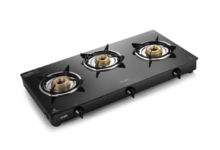
9 Transformative Hardscape Landscaping Ideas To Create the Perfect Space
When you close your eyes and imagine your perfect backyard space, what do you see? Areas to relax and soak up the sunlight? Maybe a place where you can entertain all of your friends and family?
No matter what you want to use your backyard for, it has to start with the right design. That means considering the hardscape landscaping design of your backyard.
But what is hardscaping landscaping, and how can you use it to transform a backyard into your outdoor oasis. Check out these nine ideas that will make your outdoor space shine.
Table of Contents
What is Hardscaping Landscaping?
You’ve probably heard of landscaping, but maybe not hardscaping. But the answer is simple, and you encounter hardscaping nearly every day. These two often go hand in hand when it comes to outdoor architecture and design.
Hardscaping refers to all non-living and non-vegetative elements of your backyard design. Common landscape hardscape materials include stones, concrete, bricks, wood, and gravel.
These elements can be used to create small decorative elements or large structures. A combination of hardscaping and landscaping creates a dynamic and beautiful outdoor design.
1. Stone Patios and Wood Decks
Patios and decks are one of the first elements that many homeowners add to their backyard. They’re a versatile base to create just about any outdoor space that you can imagine.
Using concrete, stone, or wood, you can create a centralized gathering space. And these items come in a variety of colors and textures so creating a look that perfectly matches your home aesthetic.
Try large stone tiles in a checkerboard pattern for some color and contrast. Or chic rectangular pavers to add length.
2. Living Room
Add an outdoor living space to your patio so you can comfortably enjoy the outdoors. Dedicate an area of your patio or deck by using comfortable furniture like sofas, armchairs, and benches.
Hardscape elements in an outdoor living don’t have to stop with the patio flooring. An outdoor fireplace or a roof covering are two great hardscape ideas that will make your outdoor living room feel even cozier.
3. Outdoor Kitchen and Dining
If you’re going to have a place to relax, you should have a place to entertain as well. An outside kitchen and dining space are another wonderful addition to your patio or deck space.
Built-in kitchen elements like islands and counters can go through an outdoor transformation. As opposed to the interior materials, try a kitchen island made of breaks or counters made of concrete.
You can also use hardscaping elements like stairs and pillars to create separation between areas.
4. Pool Deck
Have a pool that’s the center of your backyard design? Use hardscaping to highlight this feature. A pool also offers you a chance to get creative with your hardscaping.
Not only do you have many options in paver materials, size, and colors, but you can also play around with the design.
Create steps that raise the border around the pool. Or try creating steps that look like they’re floating in your pool.
5. Sunken Conversation Pit
Sitting under the night sky and getting wrapped up in a great conversation sounds like a dream, right? Well, here’s an idea to help facilitate those rousing discussions.
A sunken conversation pit is dug into the ground with built-in seating that creates a cozy area for talking. That means that the top of the conversation pit is flush with the ground of the rest of the backyard.
These features are molded using concrete but adding stone, decorative pavers, or tile can add some color and texture.
6. Garden Paths and Planters
Landscaping consists of both hard- and softscaping. Softscaping refers to vegetative elements like plants, flowers, and grass. So one place that hardscaping and landscaping come together is in the garden.
You can use hardscaping materials like concrete or wood to create planters and beds for your flowers and plants to live in. You can use stones to highlight the base of a tree.
Or you can use pavers and tiles to create a path through your garden. One style that’s popular is square pavers laid down so that grass grows between the gaps.
Visit this site for a quote on your hardscaping project.
7. Fire Pit
Another popular option for hardscaping in the backyard is a firepit. This is a fun place to gather around on summer nights to roast marshmallows or cuddle around on cool evenings in the fall.
You have many style options for fire pits, including ones that are built into the hardscaping. Combine this with a conversation pit to create a social element in your backyard.
8. Waterfalls and Water Fountains
Your backyard is in need of some serious zen, and that’s where a waterfall and water fountains come into play. These water features add a beautiful detail as well as a calming effect to your outdoor space.
You can build into the landscaping by incorporating plants along with rocks and a pond.
Water fountains are another great hardscape idea because you can utilize them throughout the backyard. If you have a pool, try a water feature that flows into it. Or have a standalone water feature as the central detail in your yard.
9. Gazebos and Pergolas
Another way to extend your living space into your backyard is by building a gazebo or pergola. These are great spaces to have a little nook that’s tucked away for privacy.
Use this area as an eating area, a lounging space, or a yoga space. Gazebos and pergolas offer a structure that’s open and airy while the roof protects you from the elements.
Be sure to use landscaping like paving stones and greenery to better incorporate this structure into your backyard.
Hardscape Landscaping Ideas that Create an Outdoor Oasis
You need a place to come home to and relax the stresses of the day away. You need a place where your family can gather to celebrate birthdays and holidays. You need a place to entertain your friends for dinner.
That place can be your backyard. With these hardscape landscaping ideas, you can create an outdoor oasis that you love to spend time in. Turn your backyard dreams into reality and have the space that everyone envies.
Are you looking for more home design ideas? Check out the blog for more articles today!








